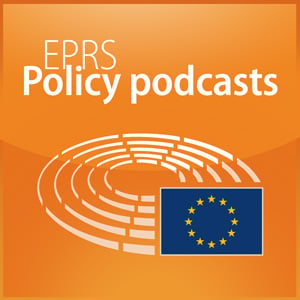Culture and regional development
European Parliament - EPRS Policy podcasts
European Parliament Webmaster
4.8 • 13 Ratings
🗓️ 30 September 2022
⏱️ 7 minutes
🧾️ Download transcript
Summary
- Original publication on the EP Think Tank website
- Subscription to our RSS feed in case your have your own RSS reader
- Podcast available on Deezer, iTunes, TuneIn, Stitcher, YouTube
Source: © European Union - EP
Transcript
Click on a timestamp to play from that location
| 0:00.0 | Welcome to the European Parliamentary Research Service podcasts. |
| 0:05.0 | In this podcast, we'll talk about the role of culture in our lives, in our societies and economies, and how it can help promote regional development in Europe. |
| 0:14.0 | Want to know more? Stay with us. |
| 0:20.0 | Culture is a strong part of people's lives. |
| 0:22.1 | It gives us an identity, a sense of belonging at local, regional, national and European levels. |
| 0:28.7 | And we're not only talking about our cultural heritage expressed in the form of cultural sites, museums, theatres or concert halls. |
| 0:36.1 | It's also about the books we read, the films we see, |
| 0:40.3 | or the games we play. But in addition to its intrinsic value, culture provides important |
| 0:45.6 | social and economic benefits. Taken together, the contribution of the arts, culture and |
| 0:51.3 | creative sectors to the EU's GDP was at 4.5% in 2019. |
| 0:56.9 | And they create about 3.5% of the jobs in the EU, although many of these were destroyed by the |
| 1:02.6 | pandemic. With improved learning opportunities, increased tolerance and opportunities to debate |
| 1:08.6 | and come together with others, culture also enhances our |
| 1:12.1 | well-being and fosters local development. |
| 1:15.2 | And it's definitely played a role in the regeneration of decayed urban areas. |
| 1:20.6 | The transformation can be astonishing. |
| 1:23.2 | Local artists move in, attracted by the cheap rental prices, and the area gets a real facelift, increasing |
| 1:29.1 | its market value and attracting a whole new public, which also has its risks. |
| 1:34.4 | Cultural projects have also given a new life to post-industrial areas. |
| 1:39.8 | 25 years ago, an industrial port city on the northern coast of Spain was transformed by |
| 1:45.4 | architect Frank Gehry's groundbreaking design for a museum of modern art. Bill Bows-Guggenheim |
| 1:51.7 | turned a rundown waterfront site into a must-visit location that continues to attract |
... |
Transcript will be available on the free plan in -914 days. Upgrade to see the full transcript now.
Disclaimer: The podcast and artwork embedded on this page are from European Parliament Webmaster, and are the property of its owner and not affiliated with or endorsed by Tapesearch.
Generated transcripts are the property of European Parliament Webmaster and are distributed freely under the Fair Use doctrine. Transcripts generated by Tapesearch are not guaranteed to be accurate.
Copyright © Tapesearch 2025.

